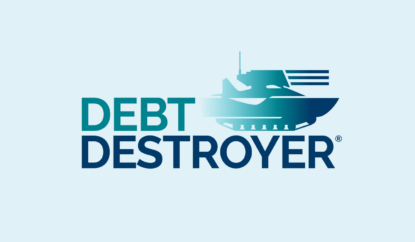Debt
Learn how to manage your debt for a strong financial foundation today and in the future.
Debt is like dynamite. Used carefully, it can be a great tool to help build things. Used carelessly, it can do a lot of unintended damage. Find out more about debt, how it impacts your financial life and goals, and how to use debt as a tool to build the future you want.



Frequently Asked Questions
If you’re thinking about taking on any type of debt, review your budget and think carefully about how your debt payments could impact your short- and long-term financial goals. Understand the loan terms including interest rate, length, and payment. Assess your purchases and ask yourself if the item you’re purchasing is a necessity. Shop around and do your research to make sure you’re getting the best deal. Finally, consider how the purchase will impact your life today and in the future.
Calculate your total debt-to-income ratio. Add up all your monthly debt payments and divide by your monthly gross income. Strive to keep this ratio below 43%, and the lower, the better.
Debt is not necessarily good or bad. However, when taking on debt, consider the purpose of the money that you’re borrowing. For example, you may take out a student loan to complete a degree that will potentially help you earn more money in the future. This is an example of “good” debt because this type of debt can lead to increased value in the future. On the other hand, think about using a high-interest credit card to pay for a concert without any plan to pay back the debt. This is an example of “bad” debt, since the purchase won’t result in a monetary gain and the interest charges will continue long after the closing act.
Your credit report contains information on many things including current and previous debts, payment history, and personally identifiable information like name and address. Potential lenders, employers, landlords and others can use your credit report to decide whether to lend, hire, or rent to you.
Some aspects of military life can make Service members more likely to accumulate debt. Leaving home at an earlier age with less of a financial safety net, frequent moves and deployments, and being stationed in a location with a high cost of living are all factors. Poor financial management can hurt your career by restricting certain duty assignments or loss of your security clearance.
Getting into debt is so much easier than getting out of debt. Check out the USAA Educational Foundation’s Debt Destroyer learning guide to complete the six-step program to eliminate your debt.






